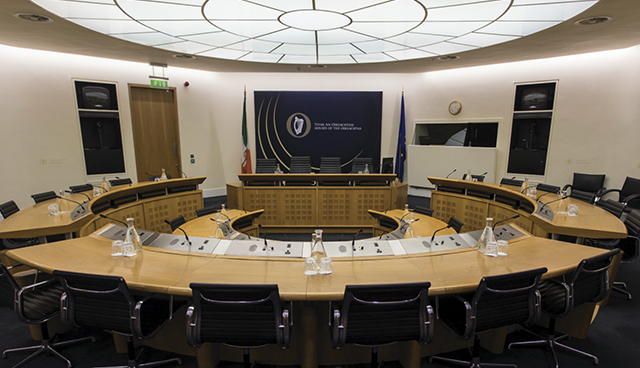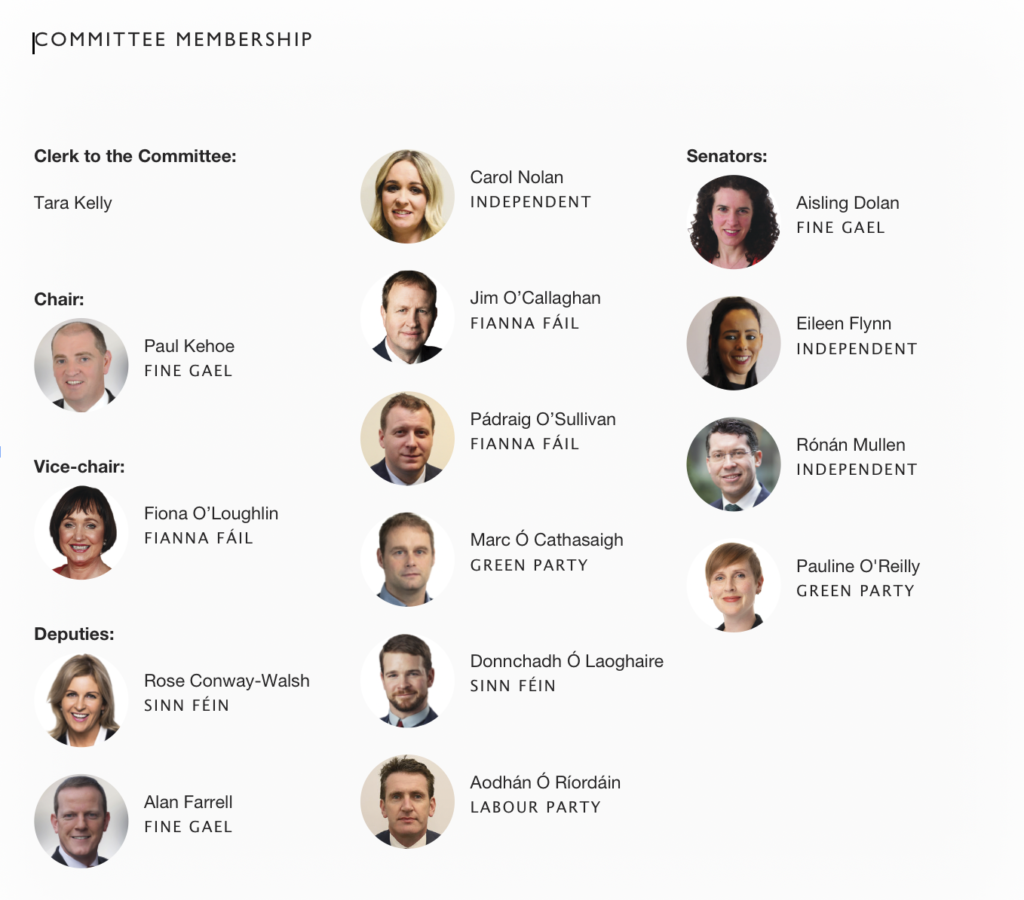Joint Committee on Education, Further and Higher Education, Research, Innovation and Science

Established following Orders of Dáil Éireann and of Seanad Éireann on 31 July 2020 and 16 September 2020 respectively, the Joint Committee on Education, Further and Higher Education, Research, Innovation and Science agreed its Work Programme in January 2021.
In conducting its work, the Joint Committee on Education, Further and Higher Education, Research, Innovation and Science informs debate and examines matters pertaining to the education system, including early education, primary, secondary, further education and training, and higher education. Simultaneously, it examines matters relating to research, innovation, and science.
Meanwhile, the Dáil Select Committee on Education was established by order of Dáil Éireann on 31 July 2020. The Select Committee is responsible for considering legislation relating to both the Department of Education and the Department of Further and Higher Education, Research, Innovation and Science, as well as proposals contained in any motion, estimates for public services, other matters as referred to the Select Committee by the Dáil, annual output statements, and relevant value for money and policy reviews.

Key policy areas
Key policy areas identified for examination by the Joint Committee are divided into three categories.
- General: progress on the implementation of Sustainable Development Goals set out in the United Nations 2030 Agenda; requirement for a Citizens’ Assembly on the Future of Education; addressing discrimination of minority communities facing exclusion from all levels of the Irish education system; decent work for people working within each level of the education sector; progress on the implementation of relevant recommendations within the Report of the Oireachtas Special Committee on Climate Action; the impact of Brexit on Irish education; and the adequacy of the Department of Education’s Digital Strategy.
- Primary and secondary level: Implementing protocols for at risk students and staff; school bullying and mental health repercussions; homework in primary schools; school completion, and home school community liaison; educational disadvantage; special needs provision; Leaving Certificate reform; the RSE Programme; the Retention of Records Bill; the relationship between the education system and child and youth mental health; the future of Irish language education; a new modern languages in primary schools initiative; school patronage at primary and post-primary level; class sizes and the pupil/teacher ratio; introduction of a healthy eating programme; reducing school costs; the School Building Programme and Energy Efficiency Upgrade Pilot Programme; feeder schools and school catchment area challenges; provision, content and delivery of Initial Teacher Education (ITE) and Continuous Professional Development (CPD); and school transport for 2021.
- Further and Higher Education, Research, Innovation and Science: The impact of the Covid-19 pandemic on further and higher education institutions; reopening colleges and future funding reforms; rising accommodation costs; a National Student Accommodation Strategy; expansion of technological universities; higher education’s ability to acquire and retain international research funding; the apprenticeship model; future funding of higher education; future of ERASMUS; reforming scientific and innovation research models; developing pathways to further and higher education for STEM talent; reviewing Innovation 2020; establishing a National Innovation Council; the Higher Education Public Private Partnership (PPP) Programme in the Technological University/Institute of Technology sector; progress on New Decade, New Approach commitments on higher education provision in the north-west; supporting a north-south programme of research and innovation; a proposed Connaught/Ulster Alliance in Higher Education; progress on measures to challenge sexual violence and harassment in higher education; education challenges facing asylum seekers and those in direct provision; a new literacy, numeracy and digital skills strategy; National Strategy for Further Education and Training; and engagement between higher education institutions in Ireland with Chinese universities.
Recent reports
Recent reports published by the Joint Committee on Education, Further and Higher Education, Research, Innovation and Science include:
- The Work Programme 2021: Outlining the Work Programme of the Joint Committee on Education, Further and Higher Education, Research, Innovation and Science for 2020.
- The Report on the Impact of Covid-19 on Primary and Secondary Education: A compilation report examining the safe and sustainable opening of schools; 2020 Leaving Certificate calculated grades and 2021 Leaving Certificate preparations, and other issues such as the use of reduced timetables in schools; cyberbullying and educational disadvantage.
- The Annual Report 2020 of the Joint Committee on Education, Further and Higher Education, Research, Innovation and Science: A report outlining the procedure and role of the Joint Committee, including the minutes if its proceedings for the period between 30 September 2020 and 31 December 2020.
- The Report on School Bullying and the Impact on Mental Health: A report covering the nature and impact of bullying on mental health, the nature and impact of cyberbullying on mental health, developing a whole school and community culture, and international evidence and best practice.
- The Report on the Pre-Legislative Scrutiny of the Higher Education Authority Bill 2021: A pre-legislative overview and assessment of the General Scheme of the Higher Education Authority Bill.
- The Report on Visit to Cork and Limerick, Thursday and Friday, 25 and 26 November 2021:
A report covering the Joint Committee’s delegation study visit to Cork Centre, Munster Technological University, and Technological University of the Shannon.





